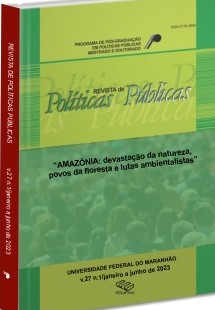PERUVIAN TRADITIONAL MEDICINE AND POPULAR PRACTICES IN TIMES OF COVID-19 PANDEMIC
DOI:
https://doi.org/10.18764/2178-2865.v27n1.2023.25Keywords:
Traditional medicine, popular practices, Public Politics, COVID-19 pandemic, PeruAbstract
On January 2020, the World Health Organization declared the outbreak of the new coronavirus a Public Health Emergency of International Importance (ESPII), constituting the organization's highest level of alert. The outbreak of the virus surprised the social structure of various communities that did not understand the behavior of the new disease, but could try to combat it with the daily and popular practices of traditional medicine. Peru is located in the Andean region and has three markedly different regions: coast, mountains and jungle. Each region has different customs and beliefs, deeply rooted in traditional medicine and various popular practices. In the remote areas of each region, the presence of healers and midwives is notorious, who provide empirical health services, often being the first people with whom the inhabitants come into contact, before going to a health establishment, to try to solve some problem. health problem. The arrival of the new coronavirus had a significant impact on society and the lack of specific treatment for the disease complicated the situation. In the remote areas of the country, the uncertainty was greater and a large part of the inhabitants chose to believe more in traditional medicine and empirical popular practices, than in the sanitary measures decreed for the prevention of the disease. These positions adopted by the population to deal with the pandemic were little or not at all effective and some of the practices only aggravated the situation of people infected with the disease. Faced with such a situation, the challenge of new health policies that dialogue with these social behaviors in order to reduce the impact of diseases and promote the use of health services becomes evident. Thus, the objective of this work is to identify the most common practices of traditional medicine in times of Covid-19 and how they should be understood by health management, taking into account that policies must be inclusive and open to the dialogue of knowledge. The essay will be approached descriptively through qualitative research and the methodological instruments of bibliographic, videographic and documentary research will be used.
Downloads
Downloads
Published
How to Cite
Issue
Section
License

This work is licensed under a Creative Commons Attribution-NonCommercial-NoDerivatives 4.0 International License.
UNIVERSIDADE FEDERAL DO MARANHÃO
PROGRAMA DE PÓS-GRADUAÇÃO EM POLÍTICAS PÚBLICAS
REVISTA DE POLÍTICAS PÚBLICAS
Termo de Transferência de Direitos Autorais
Como condição para a submissão, os autores devem declarar a autoria do trabalho e concordar com o Termo de Cessão de Direitos Autorais, marcando a caixa de seleção após a leitura das cláusulas)
- Declaro que participei da elaboração do trabalho referido, em parte ou no todo; que não omiti qualquer ligação ou acordo de financiamento entre os autores e instituições ou empresas que possam ter interesses na publicação desse trabalho;
- Declaro tratar-se de texto original, isento de compilação, em parte ou na íntegra, de minha autoria ou de outro (os) autor (es);
- Declaro que o texto não foi enviado a outra revista (impressa ou eletrônica) e não o será enquanto a possibilidade de sua publicação esteja sendo considerada pela RPP;
- Declaro que transfiro os direitos autorais do trabalho especificado para a RPP, comprometendo-me a não reproduzir o texto, total ou parcialmente, em qualquer meio de divulgação, impresso ou eletrônico, sem prévia autorização dessa Revista.
- Declaro que tenho conhecimento que a cessão do texto à RPP é gratuita e, portanto, não haverá qualquer tipo de remuneração pela sua utilização.

Este obra está licenciado com uma Licença Creative Commons Atribuição-NãoComercial-SemDerivações 4.0 Internacional.







